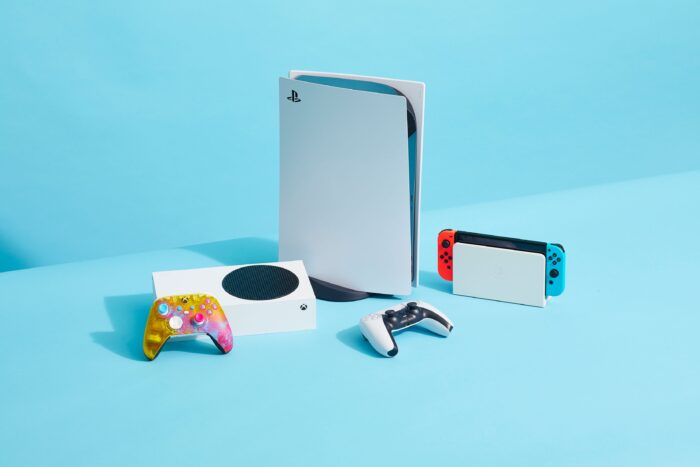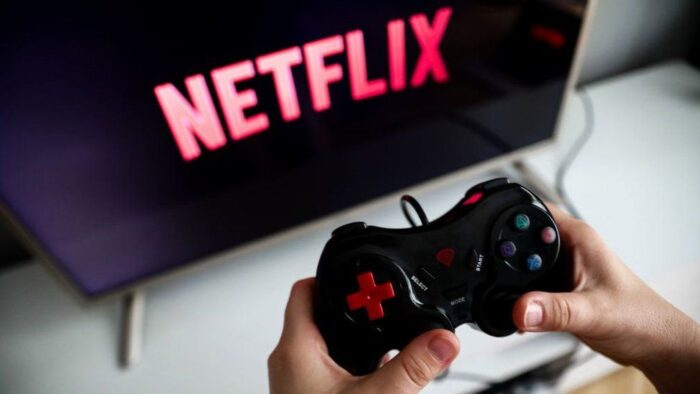
The legendary ancient fortune teller Baba from Dragon Ball is the only one who possesses a magnificent crystal ball. That’s why it’s impossible to predict where the gaming business will go in the future.
If, on the other hand, we consider the technical breakthroughs that have recently taken place, we might be able to get a general notion of what the major gaming companies have in store for us. We see that PC parts are getting more powerful and we also see that game makers are heavily utilizing that power, making games more and more graphically, powerful and visually hungry. The future is bright and we will most likely dab into the virtual reality realms, especially when we know that VR peripherals are getting developed and updated almost monthly.
Analysing what will take place ten years from now, on the other hand, can result in a strange jumble of jargon that sounds remarkably similar to the flying automobiles and other iconic inventions featured in ‘Back to the Future.
In other words, although the next 10 years will see a significant increase in new hardware and software developments, these advancements might not be as ground-breaking as we anticipate.
This article will focus on the state of the video game industry in the year 2030. Will video game consoles continue to be used? Is a sector dedicated to virtual reality going to emerge shortly? Or will everything belong to the iGaming industry?
If you’re curious about that iGaming industry, click here – but only after reading how gaming will evolve until 2030!
Will There Still Be Gaming Consoles in 2030?

Despite its widespread notoriety as an excellent environment for hosting online storage services, the cloud is inaccessible to users.
In recent years, the cloud has influenced virtually every facet of our culture, including video games, novels, journals, newspapers, documents, movies, and apps.
Sadly, digital games and platforms for streaming video games have taken over the gaming market, and this trend tends to imply that traditional video games, particularly the most romantic ones, will soon be rendered obsolete. But does this imply that gaming consoles will similarly fall into disuse shortly?
No, this is not always the case. No way, no how, not in 2030. Consumers will continue to have a multitude of reasons to acquire game consoles rather than pay for gaming services on their televisions, which is a trend that is expected to continue.
Consoles will always have a place and they are catering to a special kind of users. The dumbest business move would be to end console production and lose half or even more of the overall gaming population. What we believe will be coming in the future is the fact that consoles will be packing a lot more power with newer technology and better architectures of both mainboards, as well as CPU and GPU. You will get better performance, better speeds, and better aesthetics in packages that we have now or maybe even smaller.
Form factors have always been the thing with consoles and the more you pack into the least possible and most portable package you achieved the task. They are going to retain their current form or even shrink in size, if they reach better cooling solutions and other issues tied to performance, for the ultimate portable machines that are ready to deliver no matter what you throw at them
Putting aside the never-ending debate between PC gaming and game consoles, the most logical and natural thing to do is to believe that we will continue to anticipate new generations of game consoles like PlayStation, Xbox, or Nintendo in the year 2030. This is the most reasonable and natural thing to do because it is the only thing that makes sense.
And now we have virtual reality, a technology that is gradually becoming more widespread and is already accessible to all gamers. This is the topic around which wars will be waged and VR is going to take gaming by storm. We already see some titles indulging in this, like racing sims and some shooters, but it is good to know and mention as well that there are plenty of developers that are making games solely for VR. We also have attempts at metaverse and other similar things, which are destined to grow even more. They also have to worry about both platforms and cater to both communities which is another reason that consoles will keep on coming and keep getting better and better.
The “Netflix of Gaming” is on the Horizon

Generational differences have a crucial role in transitioning from physical to digital media. Consumers under the age of 30 have much lower degrees of emotional attachment to their belongings.
Young people have become accustomed to purchasing music on platforms such as Spotify or Apple Music, watching and downloading audio-visual content on services such as Netflix or HBO, and playing their favourite games on Xbox Game Pass, Steam, Apple Arcade, or Google Stadia, according to P. J. McNealy of Digital World Research.
At this early stage of the development of platforms for streaming video games, it is difficult to tell which company will have a monopoly in 10 years. The biggest thing that happened lately when it comes to streaming and gaming is Google’s Stadia. This is an all-new gaming platform that offers gaming across multiple screens as long as you have a Wi-Fi connection. It is a game streaming service just like Netflix and it will allow you to start a game on your TV in the living room, let you play it on your laptop later on and also allow you to finish it in your bedroom on the tablet. It works on a subscription base and as long as you have it you can enjoy the content Google Stadia offers.
Most have considered for this to be the breaker of console gaming since you can take a Google Stadia controller, chuck it in your pocket or a bag and carry it with you. all you have to do to play games is to have a smartphone, tablet or laptop with Wi-Fi and you can enjoy your games. Does it get any portable and easier than that?! So far, not really. But you also have to think about some of the issues here like bad internet connections, bad coverages, input latency and lag, but those are issues that take a little time to get resolved, and most of them are dealt with since the launch.
So far over 30 different video game franchises are available on Google Stadia, some of which are Bethesda, Electronic Arts, Rockstar Games, and Ubisoft. However, this is just the beginning of things. The popularity of game streaming will only increase going forward.
Of course, there will always be players who favour playing video games in their physical form rather than using a service like this one. Despite this, these platforms will eventually dominate the market because of their versatility, cost, and accessibility.
Our Point of View

In ten years, video games’ graphics will be substantially higher than they are now, with more fidelity and a more realistic appearance. The connection will play a significant influence on what that year has to offer.
Multiplayer games will continue to develop and deliver a variety of new experiences in 2030. In the not-too-distant future, free-to-play video games will more frequently incorporate optional in-game micropayments.
Nevertheless, one aspect of this must remain the same by 2030. After completing our favourite games, we are left with masterpieces, narratives that satiate our needs, and experiences that move us emotionally. We’ve made it to 2030!











